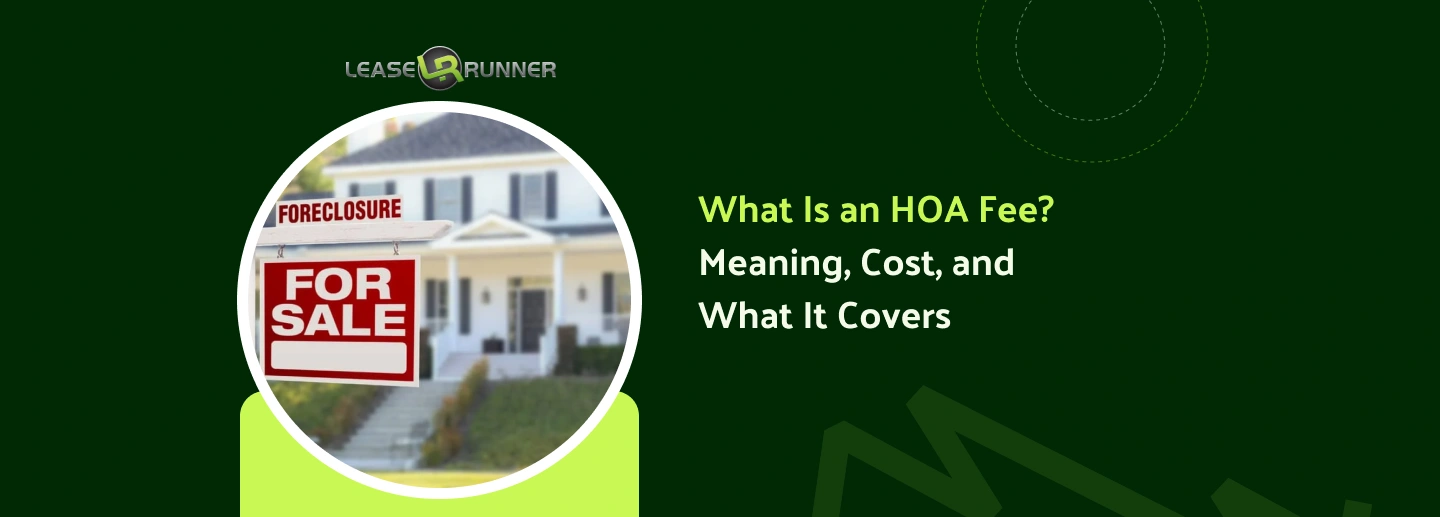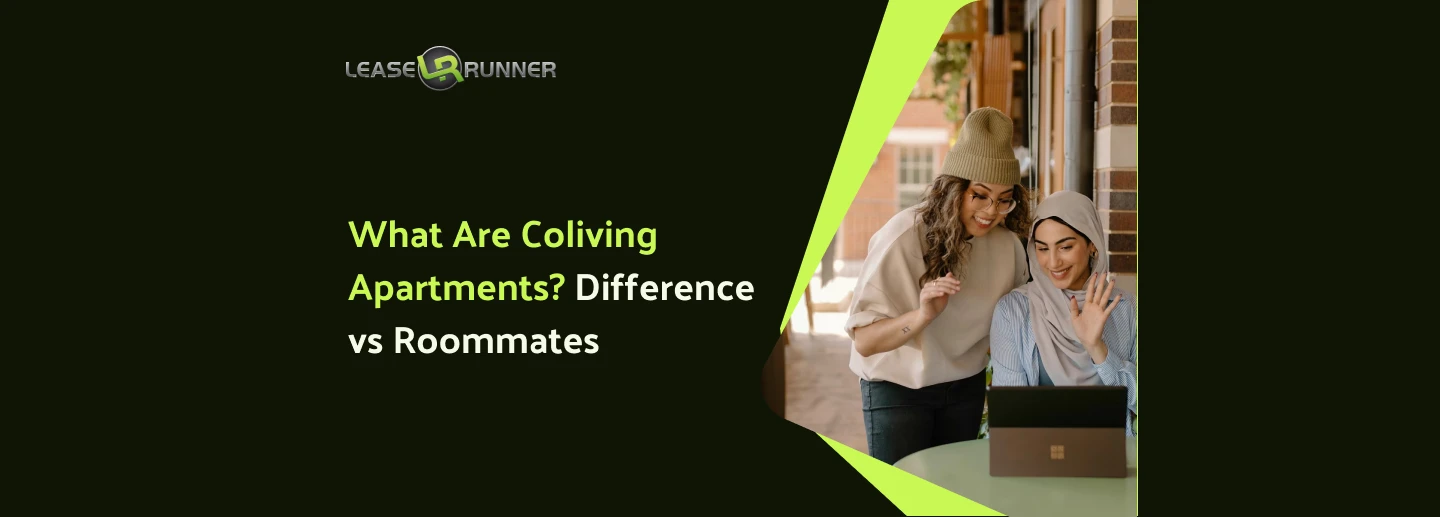Before you apply for a rental, you might wonder, "How long does a rental application take?" The amount of time depends on how thorough the application is, how the landlord uses the information, and the inspections done by other people.
The following guide tells you all you need to know about the rental application process, from the initial submission to the final approval.
Whether you're a tenant or a landlord, knowing these steps can help you prepare and avoid delays. For example, having your income documents ready can speed things up. If you know who approves apartment applications, you can also deal with any concerns ahead of time. For more details, scroll down now!

Quick Facts About Rental Application Processing
Rental Application Process
The rental application process usually follows four main steps, managed either by the landlord, a property manager, or sometimes a third-party screening company depending on the property setup.
Step 1: Preparation
Before applying, tenants should gather key items:
- Essential documents (photo ID, recent pay stubs, bank statements, offer letter)
- References (employers, past landlords)
- Check your credit report in advance
- Save for deposits and fees such as the application fee, security deposit, or move-in fee vs security deposit.
Step 2: Submit Your Application and Pay the Fee
Applicants fill out the rental form with personal, employment, and rental history details, then pay the application fee for rental. This step is often handled directly by the landlord or through an online rental application platform like LeaseRunner.
Step 3: Screening and Verification
Here, either the landlord, property manager, or a screening company processes reports:
- Identity and income verification
- Rental verification checks with employers or previous landlords
- Credit and background checks
- Affordability check to confirm income-to-rent ratio
Step 4: Approval and Move-In
Once all information is reviewed, the landlord or manager makes the final decision. If approved, the tenant receives the lease to sign, pays deposits or move-in fees, and schedules a move-in date. If denied, they may receive a rental application denial letter explaining the reasons. Landlords might also provide additional agreements like a lease addendum or a pet addendum if applicable.
What’s Included in a Rental Application?
A typical rental application asks for:
- Personal Information: Full name, contact details, date of birth, SSN (for credit check only, not stored or shown).
- Employment and Financial Records: Employer and job title, proof of income verification (pay stubs, tax returns, bank statements).
- History and References: Previous rental addresses, landlord contacts, professional/personal references (from employers or past landlords).
- Additional Details: Consent for credit/ background checks or hard/soft credit checks, information on pets, vehicles, other occupants.
The LeaseRunner application process uses online forms to make things easier while keeping your data safe.. For example, you may need to provide your Social Security number (SSN) for a credit check, but it is not stored or shown to the landlord.
Useful advice: Collect all your documents before you apply. This includes your ID, pay stubs, and phone numbers for references. Being prepared makes the time it takes to process an apartment application much shorter.

How Long Does a Rental Application Take?
One of the most common questions is, "How long does a rental application take?" A rental application usually takes between one and three business days to process. Some landlords accept applications in only a few hours, particularly if the person applying has a solid credit score and a steady income.
But during busy seasons or if the application is missing information, it can take a week or longer. Rarely, some tenants experience an over a month delay rental application due to slow responses or verification problems. The timeline depends on the rental application process and outside factors.
For example, landlords check credit reports, verify jobs, and call previous landlords to reduce risk. If your credit score is high and your income is steady, approval often comes faster.
Useful advice: To speed up the process, prepare all documents ahead of time. This includes pay stubs, references, and a photo ID. Having these ready makes the time it takes to process an apartment application shorter.
Key factors that influence the timeline
Several elements can affect how quickly a rental application is reviewed and approved. The most common factors include:
- Application completeness and accuracy: Submitting all required documents (ID, proof of income, rental history, references) with correct details speeds up the process, while missing or inaccurate information can cause delays.
- Speed of verification: Employers, previous landlords, and references need to respond; slow replies can extend the timeline.
- Background, credit, and eviction checks: Simple checks may come back within minutes, but complex credit histories or additional screening can take longer.
- Number of applicants and market demand: In competitive markets, landlords may review multiple applications before making a decision, which can add extra days.
- Landlord or property management process: Some use online screening tools for faster turnaround, while others rely on manual checks that take more time.
- Applicant responsiveness: Quick replies to requests for additional information or documents help keep things moving.
- Timing of submission: Applications sent late in the day, on weekends, or during holidays are usually processed on the next business day.
Being proactive can shorten how long it takes to process a rental application.
What Situations Can Lead to Delay?
Rental application delays usually arise from a few common situations:
- Incomplete applications: Missing documents such as proof of income, ID copies, or rental history often require back-and-forth with the applicant, adding days to the process.
- Slow responses from references: When former landlords or employers don’t reply quickly, the rental application review period extends.
- High rental demand: During busy moving seasons, property managers may be reviewing dozens of applications at once, which naturally slows approvals.
- Manual checks instead of automated tools: The background check duration and credit check timeline vary by provider; manual checks take longer.
- Additional verification needed: If details don’t match (e.g., inconsistent addresses or unclear employment records), landlords may need extra time to confirm accuracy.
In most cases, approvals only take a few days, but any of these situations can extend the timeline.
What factors can speed up the rental application process?
Several key factors can make the rental application process faster and more efficient, especially when applicants take proactive steps.
- Submit a complete application: Include ID, proof of income, rental history, references, and any required forms upfront to avoid delays.
- Provide accurate information: Double-check details like addresses, employment, and contact numbers to prevent extra verification steps.
- Be responsive: Reply quickly to landlord or property manager requests to keep your application moving forward.
- Use online applications and digital tools: Electronic submissions and instant background checks can significantly shorten approval times.
- Maintain good credit: A solid credit history reduces the need for further investigation and speeds up approval.
- Prepare strong references: Let your employer or past landlord know they may be contacted so they can respond promptly.
- Meet stated requirements: Apply only for rentals where you clearly match income, credit, and policy criteria.
- Submit during business hours: Applications sent early in the week or during office hours are often reviewed faster.
- Have a guarantor ready if needed: If your income or credit is borderline, providing a co-signer in advance can smooth the process.
How Long Does Each Step of a Rental Application Take?
Knowing how long rental applications take to get approved means understanding the time each step takes in the renting application process. Here’s a breakdown:
Submission of Application and Documents
Filling out and sending your application usually takes 30 minutes to a few hours. If you have all your documents ready, like IDs, pay stubs, and rental history, you can finish this step fast. Many landlords use online systems, which help avoid mistakes and speed things up.

Payment of Application Fees
Most landlords charge a fee, usually between $25 and $75. This fee pays for background and credit checks. If you pay online, it is processed right away. If you pay by check or a slower method, it can cause delays. Pay fees quickly to avoid waiting.
Example: If you pay your fee online as soon as you apply, the landlord can start your screening right away.
Tenant Screening Reports
Tenant screening is a key part of the process of leasing an apartment. It includes:
- Credit Check: Shows your credit score and is usually done instantaneously.
- Criminal Background Check: Instantaneous, but manual search can add 24-48 hours. ,.
- Eviction Check: Checks for past evictions and usually finishes instantaneously.
- Income Verification & Cash Flow Report: Instantaneously proves you can pay rent. If done by hand, this can take 1 to 3 days.
Automated screening tools can finish these checks fast. Manual checks take longer.
Example: LeaseRunner can run all these reports instantly if you provide your info and pay the fee.
Landlord/Reference Verification for Renting
Landlords call your old landlords and employers to check your history. This pre-renting verification process can take 1 to 3 days, depending on how fast your references reply. If your last landlord answers right away, you move to the next step faster.
Example: If you tell your references to expect a call, they can reply quickly and help speed up the approval process.
Final Decision and Communication
After all the checks, the landlord usually decides and tells you within 24 hours. Some landlords might call you first and then send the lease.
Example: If you get a call saying you are approved, you might get the lease by email the same day.
Ways to Tell If Your Rental Application is denied
If your rental application isn’t approved, there are usually a few clear signs that can help you recognize the denial.
- No response within the stated timeline – Other applicants are invited to receive and sign the lease, but you are not.
- Formal denial letter – Some landlords send a rental application denied letter explaining the reason.
- Refund of deposit or application fee – Instead of moving forward, your holding fee is returned.
- No lease offer – If others are invited to sign a lease and you’re not, your application likely failed.
- Listing remains active – If the property is still advertised after your application, the landlord is seeking other tenants.
- Background check notice – A message citing credit, eviction, or criminal records as reasons for denial.
What Can Affect Rental Application Processing Time?
Many things can change the time that a rental application takes. Knowing these helps you avoid delays.
Incomplete or Inaccurate Applications
If you leave out information or make mistakes, the landlord has to ask for more details. For example, if you forget your pay stub or give a wrong phone number for a reference, the landlord must follow up. This can add days to the overall approval process. A complete and accurate application is the best way to reduce how long does a rental application take.
Useful advice: Double-check your application before you send it. Make sure all documents are attached and all info is correct.
Slow Responses from Employers or References
Landlords often call your employer or old landlords to check your history. If these people are slow to reply, your application takes longer. For example, if your boss is on vacation or your old landlord is hard to reach, you might wait several days.
Useful advice: Tell your references and employer to expect a call or email. Give the landlord the best contact info for them.
Screening Company Speed & Tools
The technology used by screening companies affects the average time that a rental application takes. Automated systems can check your credit and background in hours. Landlords using LeaseRunner or similar platforms get instant reports. This speeds up the renting application process.
Some landlords still use manual checks or paper forms. These can take days. For example, if a landlord calls each reference by phone, it slows down the approval process.
Useful advice: Ask the landlord what screening tools they use. If they use online systems, your application will move faster.
High Demand or Peak Seasons
During busy times, like summer or when school starts, many people apply at once. Landlords get lots of applications and need more time to review them. For example, in cities with many renters, landlords might get dozens of applications a week.
Useful advice: Apply early and make your application complete and strong. This helps you stand out and avoid delays.
How Landlords Can Streamline the Process?
Landlords can make the process of leasing an apartment faster and smoother.
- Use online tools: Reliable platforms like LeaseRunner allow tenants to submit online rental applications digitally, reducing paperwork and minimizing errors.
- Automate screening: Trusted services can run background, credit, and eviction checks quickly.
- Communicate clearly: Tell tenants what you need and when you need it. This helps them send complete applications.
- Never skip the rental application process: It protects you from bad tenants and legal issues in the future.
Useful advice: Tell tenants what documents to send and how to pay fees. This makes it easier for them to apply and for you to review.
Final Thoughts
Knowing how long does a rental application take helps everyone have fair expectations. While many renters get approval within a one week rental application timeline, others experience longer delays due to extensive screening processes, missing documents, or following more complex processes like the equity apartments application process.By preparing early, providing complete paperwork, and staying responsive, you can move from application to receive and sign the lease much faster.
Landlords who employ online tools and provide clear directions make it easy for everyone to fill out a rental application. If you are curious about different types of rentals, such as mid-term rentals, you can read more in our guide to mid-term rentals.
FAQs
Q1. How long does it take to process an apartment application?
Usually, it takes one to three business days to go over a rental application. But it might take a week or more if your application is lacking information or if it's a busy time of year. In this case, sending in all the necessary paperwork, such as pay stubs and references, ahead of time will make the process go faster.
Q2. Who approves apartment applications?
Landlords, property managers, or leasing agents will review applications and give them approval. They verify your rental history, income, and background before making the decision.
Q3. What is the LeaseRunner application process?
An online system providing rental, credit, and income info, impacting how long a rental application takes.
Q4. Can application fees delay approval?
Yes. Not paying application costs might slow down the approval process. Paying your fees on time guarantees that your application proceeds without any problems.
Q5. How can tenants speed up approvals?
Fill out the whole application and send in all the relevant papers. Complete all forms, submit documents quickly, answer queries, and provide contact info. These actions reduce how long rental applications take.







